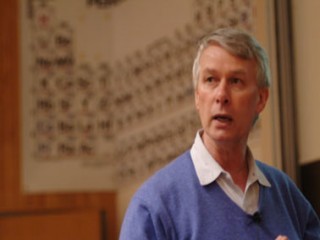
Richard J. Roberts biography
Date of birth : 1943-09-06
Date of death : -
Birthplace : Derby, England
Nationality : British
Category : Science and Technology
Last modified : 2011-09-23
Credited as : biochemist, molecular biologist, Nobel Prize for Physiology or Medicine
0 votes so far
When he was 4, his family moved to Bath. In Bath, he attended City of Bath Boys' School. As a child he at first wanted to be a detective and then, when given a chemistry set, a chemist. He failed his Physics A-level exam on his first attempt.
For his discovery of "split genes", molecular biologist Richard J. Roberts won the Nobel Prize for Medicine in 1993, sharing the honor with Phillip A. Sharp, who made much the same findings independently at the Massachusetts Institute of Technology.
Fresh from college and just two years post-doctoral work at Harvard, Roberts was invited by James Watson ("The Watson", as Roberts wrote in his biography) to join him at Cold Spring Harbor Laboratory, where they worked together for more than two decades. Roberts, though, found Watson disinterested in the burgeoning use of computers in lab work, and he was unable to convince Watson to start a company selling restriction enzymes. In 1994, Roberts joined New England Biolabs, a tiny biotech company. Roberts is still Director of Research at NEB, which is now a leader in the life science industry.
Roberts' Nobel honors were considered somewhat controversial, for slighting his collaborators at Cold Harbor, Louise T. Chow and Tom Broker, who helped design and conduct the experiments that led to their breakthrough. Roberts responded to the dispute by explaining, "The Swedes spent 16 years deciding what to do. We can only assume they researched the issue carefully, and came to their own conclusions as to who did what".
In 1995, Roberts and Sharp shared a less envied distinction, when both scientists received letters from "Unabomber" Ted Kaczynski, threatening their lives if they did not stop their work.
Awards:
Federation of American Scientists Board of Sponsors
Nobel Prize for Medicine 1993 (with Phillip A. Sharp)
















